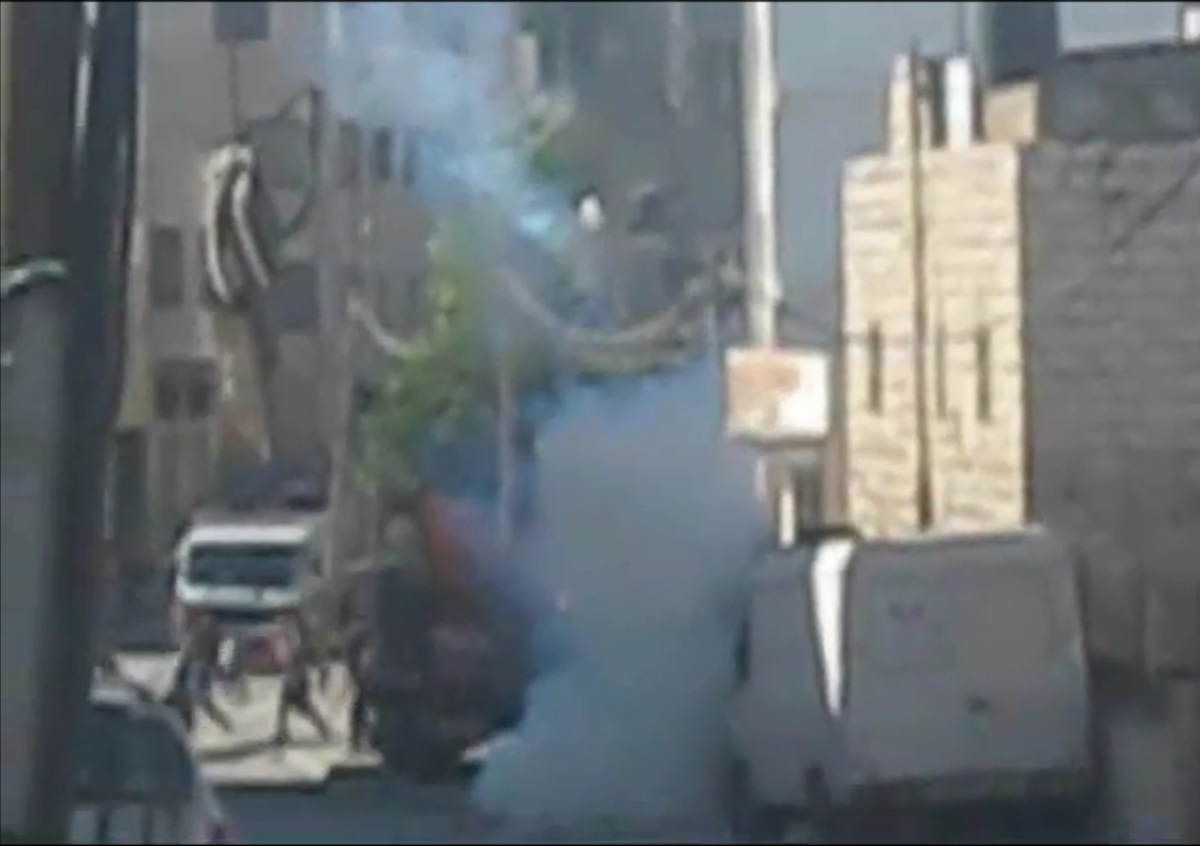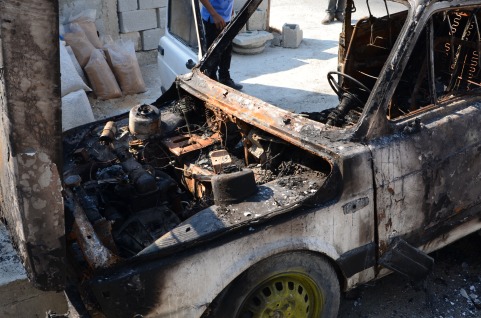Category: Reports
-
VIDEO: Israeli soldiers fire tear gas canisters and stun grenades at school children
1st October 2013 | International Solidarity Movement, Khalil Team | Hebron, Occupied Palestine This morning, Tuesday 1st October, Israeli soldiers fired two tear gas canisters and four stun grenades at children on their way to school. In this case, a few children threw stones and pebbles at Israeli forces as the soldiers stood watching them…
-
Settlers burn olive trees in Sarta
27th September 2013 | International Solidarity Movement, Nablus Team | Sarta, Occupied Palestine Settlers burnt around 35 olive trees in the Palestinian village of Sarta late on Thursday night, following the area being declared a closed military zone in preparation for the construction of a new settler road. Around 60 settlers from the illegal Bruchin settlement and…
-
Vicious settler attack leaves 15-year-old in need of hospitalisation
24th September 2013 | International Solidarity Movement, Khalil Team | Hebron, Occupied Palestine Yesterday, Monday 23rd September, a mob of Israeli settlers invaded the roof of a Palestinian family in Hebron, attacked several Palestinians and international activists and beat a 15-year-old unconscious, leading to hospitalisation. At approximately 5pm a group of Israeli settlers and Jewish…


